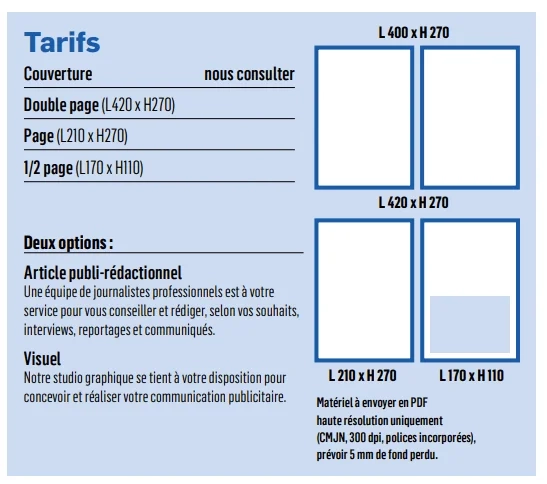Space not available
Reserve this advertising space
Choose an ad format to publish
The file format is not recognized
Choose this advertising space
and click here to transmit
an announcement
Click here to transmit
an announcement
Drag and drop
or transmit
an announcement
(up to 10 days after payment)
Bottom reference
Reference
– The livestock sector

Given the rapid increase in population and urbanization, the demand for livestock products is increasing but does not meet the needs of national consumption.
Space not available
Reserve this advertising space
Choose an ad format to publish
The file format is not recognized
Choose this advertising space
and click here to transmit
an announcement
Click here to transmit
an announcement
Drag and drop
or transmit
an announcement
(up to 10 days after payment)
Bottom reference
Reference
 The good performance of projected activities in the livestock sector can be explained by the impact of the 3rd phase of the mass vaccination campaign for small ruminants, which the government launched at the end of 2021. Supported by the World Bank, notably financing the Livestock Development Project, and the FAO, the operation aims to preserve capital of 110 billion FCFA, as well as the income of livestock farmers who will thus be able to contribute to ensuring food security in the country. In its missions to promote and develop livestock farming, the Société de Développement et d'Exploitation des Productions Animales (SODEPA) has set up a system of ranches and agro-pastoral development zones. It is also responsible for creating pastoral vocations. Regarding beef, multiple government supports support a fluid market, with strong demand for meat products. To improve the genetic potential of the national herd, the government wishes to import 360 purebred pigs. The supply will be made in three batches for a total of 5.5 million CFA francs for the benefit of pilot farms located in the Central, Littoral and West regions. Some producers regret the non-inclusion in the project of the Far North region, the main pork production basin in Cameroon, which alone provides 60% of the national production per year. 12 pilot selection farms will be authorized to make intra-breed crosses to perpetuate the pure breeds received and 6 pilot multiplication farms will have to reproduce them to supply the other production units in the country for the expected quantities and qualities of pork. This rejuvenation process launched in 2014 with the support of some foreign donors such as the African Development Bank (AfDB), has already made it possible to distribute nearly 6,000 piglets to farms across the country. The Compagnie Fermière du Cameroun (CFC), the new subsidiary of the SABC group, intends to contribute its expertise to improving the animal nutrition offering, with the establishment of a parent farm that will produce 112,500 hatching eggs per week and a hatchery capable of producing 90,000 day-old chicks per week. On a community agroecological farm, with a 2-hectare plot, the Keur Kamer association recently built a breeding unit (sheepfold and technical premises) equipped with solar energy and water.
The good performance of projected activities in the livestock sector can be explained by the impact of the 3rd phase of the mass vaccination campaign for small ruminants, which the government launched at the end of 2021. Supported by the World Bank, notably financing the Livestock Development Project, and the FAO, the operation aims to preserve capital of 110 billion FCFA, as well as the income of livestock farmers who will thus be able to contribute to ensuring food security in the country. In its missions to promote and develop livestock farming, the Société de Développement et d'Exploitation des Productions Animales (SODEPA) has set up a system of ranches and agro-pastoral development zones. It is also responsible for creating pastoral vocations. Regarding beef, multiple government supports support a fluid market, with strong demand for meat products. To improve the genetic potential of the national herd, the government wishes to import 360 purebred pigs. The supply will be made in three batches for a total of 5.5 million CFA francs for the benefit of pilot farms located in the Central, Littoral and West regions. Some producers regret the non-inclusion in the project of the Far North region, the main pork production basin in Cameroon, which alone provides 60% of the national production per year. 12 pilot selection farms will be authorized to make intra-breed crosses to perpetuate the pure breeds received and 6 pilot multiplication farms will have to reproduce them to supply the other production units in the country for the expected quantities and qualities of pork. This rejuvenation process launched in 2014 with the support of some foreign donors such as the African Development Bank (AfDB), has already made it possible to distribute nearly 6,000 piglets to farms across the country. The Compagnie Fermière du Cameroun (CFC), the new subsidiary of the SABC group, intends to contribute its expertise to improving the animal nutrition offering, with the establishment of a parent farm that will produce 112,500 hatching eggs per week and a hatchery capable of producing 90,000 day-old chicks per week. On a community agroecological farm, with a 2-hectare plot, the Keur Kamer association recently built a breeding unit (sheepfold and technical premises) equipped with solar energy and water.
Highly prized by gourmets in Cameroon, snail farming attracts not only agri-entrepreneurs but also the cosmetics industry. This is a boon for snail farmers, who offer training to popularize this still relatively uncommon sector.
Space not available
Reserve this advertising space
Choose an ad format to publish
The file format is not recognized
Choose this advertising space
and click here to transmit
an announcement
Click here to transmit
an announcement
Drag and drop
or transmit
an announcement
(up to 10 days after payment)
Bottom reference
Reference
THE LIVESTOCK AND FISH FARMING VALUE CHAIN DEVELOPMENT PROJECT (PDCVEP)
This project stems from the government's desire to actively involve the livestock and fisheries subsector in economic growth. To achieve this, seven implementing partners, including two international organizations and five national companies, will have to work inclusively to improve beneficiaries' incomes and create new, viable jobs in the three selected value chains. Through the PDCVEP, supported by the African Development Bank (AfDB), training workshops were organized for junior researchers and technicians from the Agricultural Research Institute for Development (IRAD). Co-financed by the State of Cameroon and the AfDB, the PDCVP aims, over five years, to increase the competitiveness and hygiene of beef, pork, and aquaculture products, improve the incomes of stakeholders, and create new jobs in these three value chains. The cost of this project amounts to €99.27 million, including €84 million from the AfDB.
Space not available
Reserve this advertising space
Choose an ad format to publish
The file format is not recognized
Choose this advertising space
and click here to transmit
an announcement
Click here to transmit
an announcement
Drag and drop
or transmit
an announcement
(up to 10 days after payment)
Bottom reference
Reference

















 A Seat That Transforms into a Bed
A Seat That Transforms into a Bed  In the world of air travel, economy class is often considered the most affordable option. However, at Air Afrika, we believe that affordability shouldn't mean compromising on quality of service. Our class
In the world of air travel, economy class is often considered the most affordable option. However, at Air Afrika, we believe that affordability shouldn't mean compromising on quality of service. Our class









